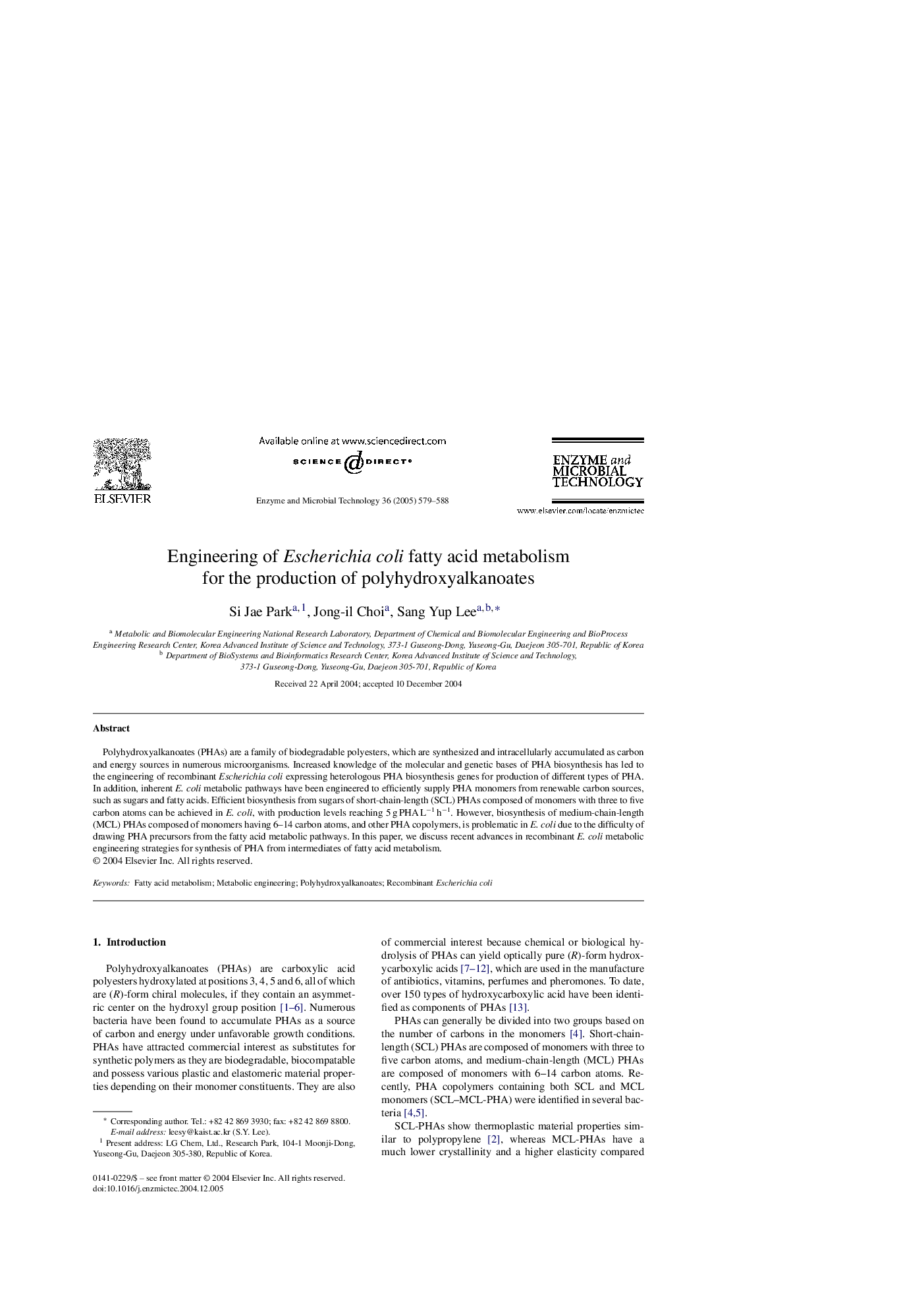| Article ID | Journal | Published Year | Pages | File Type |
|---|---|---|---|---|
| 10233244 | Enzyme and Microbial Technology | 2005 | 10 Pages |
Abstract
Polyhydroxyalkanoates (PHAs) are a family of biodegradable polyesters, which are synthesized and intracellularly accumulated as carbon and energy sources in numerous microorganisms. Increased knowledge of the molecular and genetic bases of PHA biosynthesis has led to the engineering of recombinant Escherichia coli expressing heterologous PHA biosynthesis genes for production of different types of PHA. In addition, inherent E. coli metabolic pathways have been engineered to efficiently supply PHA monomers from renewable carbon sources, such as sugars and fatty acids. Efficient biosynthesis from sugars of short-chain-length (SCL) PHAs composed of monomers with three to five carbon atoms can be achieved in E. coli, with production levels reaching 5 g PHA Lâ1 hâ1. However, biosynthesis of medium-chain-length (MCL) PHAs composed of monomers having 6-14 carbon atoms, and other PHA copolymers, is problematic in E. coli due to the difficulty of drawing PHA precursors from the fatty acid metabolic pathways. In this paper, we discuss recent advances in recombinant E. coli metabolic engineering strategies for synthesis of PHA from intermediates of fatty acid metabolism.
Keywords
Related Topics
Physical Sciences and Engineering
Chemical Engineering
Bioengineering
Authors
Si Jae Park, Jong-il Choi, Sang Yup Lee,
